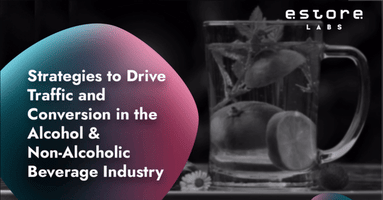Introduction The dynamic and ever-evolving world of the beverage industry is a realm where brands...
Chat GPT- Should we be worried?
This year is going to be exciting for AI-driven innovation. Many AI tools are available in various categories: natural language processing, computer vision, machine learning and deep learning. There are numerous open-source AI tools and libraries, as well as proprietary AI tools offered by startups and established tech companies. In short, the AI tool landscape is vast and constantly evolving. Nonetheless, there is one tool to rule them all, and that is chatGPT.
In this article, we delve into the workings of ChatGPT, its possible applications and its impact on our methodology.
What is chatGPT?
ChatGPT doesn’t need any introduction. It's not just any tool among hundreds; it’s THE TOOL that has been on our minds since November 2022. ChatGPT was developed by OpenAI and adopted by businesses, developers and researchers globally. As of 2023, the number of ChatGPT users has surpassed millions…
We’ve been having tremendous fun testing ChatGPT’s capabilities. As soon as ChatGPT launched, we wondered how it would impact the creative community.
Will AI-generated copy be able to replace copywriters, content creators, and marketing specialists?
Is the tool that good that, technically, all you need is any human to manage that vast amount of AI-generated content?
Should we be worried?
Not at all (or, at least, not yet). ChatGPT is a fantastic tool, but that is all it is! Of course, since ChatGPT can write anything, everyone is asking the big question: Will AI replace copywriters? We asked chatGPT, and this is what it answered:
𝐍𝐨, 𝐀𝐈 𝐰𝐢𝐥𝐥 𝐧𝐨𝐭 𝐛𝐞 𝐚𝐛𝐥𝐞 𝐭𝐨 𝐫𝐞𝐩𝐥𝐚𝐜𝐞 𝐜𝐫𝐞𝐚𝐭𝐢𝐯𝐞 𝐜𝐨𝐩𝐲𝐰𝐫𝐢𝐭𝐞𝐫𝐬 𝐢𝐧 𝐭𝐡𝐞 𝐟𝐮𝐭𝐮𝐫𝐞. 𝐀𝐈 𝐢𝐬 𝐜𝐚𝐩𝐚𝐛𝐥𝐞 𝐨𝐟 𝐚𝐮𝐭𝐨𝐦𝐚𝐭𝐢𝐧𝐠 𝐜𝐞𝐫𝐭𝐚𝐢𝐧 𝐭𝐚𝐬𝐤𝐬 𝐚𝐧𝐝 𝐦𝐚𝐤𝐢𝐧𝐠 𝐭𝐡𝐞𝐦 𝐦𝐨𝐫𝐞 𝐞𝐟𝐟𝐢𝐜𝐢𝐞𝐧𝐭, 𝐛𝐮𝐭 𝐢𝐭 𝐰𝐢𝐥𝐥 𝐧𝐞𝐯𝐞𝐫 𝐛𝐞 𝐚𝐛𝐥𝐞 𝐭𝐨 𝐜𝐨𝐦𝐩𝐥𝐞𝐭𝐞𝐥𝐲 𝐫𝐞𝐩𝐥𝐚𝐜𝐞 𝐭𝐡𝐞 𝐜𝐫𝐞𝐚𝐭𝐢𝐯𝐢𝐭𝐲 𝐚𝐧𝐝 𝐢𝐧𝐬𝐢𝐠𝐡𝐭 𝐭𝐡𝐚𝐭 𝐚 𝐡𝐮𝐦𝐚𝐧 𝐜𝐨𝐩𝐲𝐰𝐫𝐢𝐭𝐞𝐫 𝐛𝐫𝐢𝐧𝐠𝐬 𝐭𝐨 𝐭𝐡𝐞𝐢𝐫 𝐰𝐨𝐫𝐤.
We went further and asked ChatGPT why it will not replace human creators. This was the answer:
- AI lacks creativity and originality
- AI struggles with language subtleties and complexities
- AI lacks emotional and sentimental expression
- AI limited in creative thinking
- AI lacks a personal understanding of the target audience
AI certainly is not giving itself enough credit! A perfectly crafted prompt can help find new marketing angles and ways of thinking about our audience. It "reads" the Internet. It is a tool that runs on examples. So AI will not UNDERSTAND the desires and motivations of our customers, but it might as well list them! Then it's up to us to decide how to apply this knowledge.
To use or not to use ChatGPT?
How do you feel about AI-generated content? If, after the initial awe, you start to wonder if it is ethical, you are not alone. The whole world is now discussing whether AI is fair to the millions of content creators that are being "read” by the algorithm. This question is going to consume us all in the next few months. In the meantime, since everyone is using ChatGPT, we joined the craze. After testing the tool, we discovered that ChatGPT can:
- Help create content
- Hinder Creativity
- Reduce time spent on a task
- Prolong time spent on a task
The chatbot is useful. But only if you know how and when to use it.
It all comes down to a perfect prompt…
Let’s think of AI as our assistant. And like a proper assistant, it needs a brief. Every brief needs a WHO, a WHAT, a WHERE, a WHY and a HOW.
- WHO: we can ask AI to be someone, to act as someone specific. We describe the audience and the role;
- WHAT: we need to clarify the format. If we want AI to write a sales email, a blog intro or a keywords list;
- WHERE: are we creating a post for Facebook, LinkedIn, or an introduction to a YouTube video?;
- WHY: everything we do has a purpose – we need to tell AI why we are creating our content;
- HOW: we need to tell the chatbot how we want the text to be structured. Do we want 3 paragraphs or 10 bullet points?
We all asked AI at some point to write an emotional post, a luxury product description, or a funny story. But AI is not a sentient being! It is a tool that runs on examples. It might understand the word "emotional” from a dictionary (since AI scans the entire Internet). But if we want perfect results, we can ask AI to use someone as inspiration, to impersonate the writer (and not the writing style). Is it ethical, you might ask? But, whenever we run a Google search, we do the same thing; we are just much slower... The point is: AI needs context. The more context we can provide, the better the results.
Is ChatGPT for everyone?
Pretty much! We all, at some point, used it at work. However, if you did not try to create a short story about a cat on the moon or a limerick, you did not fully utilise its capabilities. Joking aside, ChatGPT is truly a universal tool that is going to revolutionise the way we work.
We, humans, are obsessed with automation. We want to work smarter, not harder. But it is not always a good thing! You might remember the crazy story that went viral in 2016: a certain programmer at a finance company automated his job for six years by writing a script that performed all his daily tasks, and after he forgot how to code, he eventually was caught and fired. Whether it is a true story or not, the risk is real. Coders might not forget how to code, and writers might not forget how to write, but they might all lose the ability to be creative. Artificial intelligence is a fantastic tool, but we should not allow AI to take over our creativity. Automation is great, but not everything needs to be automated!
How and when can we use ChatGPT?
Marketing
ChatGPT is a perfect marketing assistant. It can reword cold emails or generate popular and relevant sites to outreach. It can ASSIST in creating:
- marketing plan,
- social media content,
- blog articles,
- newsletters,
- emails,
- podcasts,
- video content,
- ads
ChatGPT will brainstorm ideas, and then, it is the job of a human to create something awesome and unique.
Copywriting
The writing community should not feel threatened. AI is not going to replace good writers, but it might replace bad ones. Copywriters can experience creative blockage, but it is not an excuse to miss a deadline. ChatGPT helps copywriters be productive even if they don’t feel creative! The AI can help construct a first draft (and a first draft only).
Still, the AI-generated content sounds OK and looks OK. But why should we settle for OK if we can be exceptional? ChatGPT scans millions of examples of product descriptions and features & benefits. It writes a text that follows the same pattern, is full of filler words, and looks like everything else you can find online, i.e. any product descriptions and bullet points that sit there without generating traffic.
Copywriters who rely on AI too often risk losing their creative flair and ability to create something that stands out and catches the shopper’s attention. Plus, to avoid the AI-detection algorithm, a copywriter still must paraphrase the AI-generated content to make it undetectable… and that requires almost as much work as writing from scratch.
SEO
ChatGPT can play a role in helping drive traffic and improve a website's ranking through effective SEO and keyword strategies. At eStoreLabs, we have created a custom SEO methodology that gets the job done. But we are always looking for new tools that can automate the job further and give us a competitive edge. How can we use ChatGPT in the SEO industry?
- Keyword Research: ChatGPT can suggest keywords and phrases relevant to a specific topic, industry, or business;
- Metatag Optimization: ChatGPT can assist in writing metatags, including the page title, and header tags;
- Competitor Analysis: By analysing competitor websites and content, ChatGPT can provide insights on keywords and phrases and suggest ways to incorporate these into the SEO strategy.
Risks of using ChatGPT in eCommerce
Businesses must be aware of the potential risks associated with the use of ChatGPT or any AI-generated content:
- Misinformation: ChatGPT is only as accurate as the data it was trained on. It may generate articles that may contain factual errors or are just flat-out incorrect and then propagate them. It can lead to customer confusion, dissatisfaction and damage to the reputation of the business, brand or eRetailer;
- Security Concerns: ChatGPT has access to sensitive customer information, such as payment details and personal information, which can be vulnerable to hacking and data breaches if proper security measures are not in place;
- Bias: If the data used to train ChatGPT contains biases, such as gender or racial biases, ChatGPT may perpetuate and amplify these biases in its responses, leading to discriminatory behaviour;
- Detection by Google's AI Detection Algorithm: Google has an AI detection algorithm to detect and flag sites that use AI-generated content. If a page uses ChatGPT in a way that violates Google's policies, the site may be penalised and lose visibility and traffic. Using AI-generated content is not necessarily against Google’s guidelines, but writing for search engines rather than humans is the issue.
ChatGPT and eStoreLabs
DOs
- We use ChatGPT as our virtual assistant in marketing research for social media, internal newsletters, emails and blog topic clusters;
- We incorporate ChatGPT into SEO activities as another pair of eyes when we perform initial keywords search in different languages;
- We use ChatGPT in copywriting only for brainstorming ideas, addressing pain points, and as a more advanced thesaurus, providing our copywriters with a wealth of synonyms and related words to enhance their writing.
DONTs
- We never build a content strategy on ChatGPT-generated copy but use it merely as an assistant tool
- We never use pure AI-generated content in our external communication
- We never feed ChatGPT confidential brand information
- We never use ChatGPT as a translation tool (since we transcreate our content)
- We never use AI to replace the creativity and expertise of a human copywriter
- We never translate keywords (we perform an SEO analysis for each market individually)
Conclusion
Although ChatGPT is truly impressive, it still lacks the human touch, which is vital when creating captivating content. ChatGPT assists us and makes our lives easier, but it can never replace the creative originality that humans possess. It's an extraordinary tool, but we should remember the significance of human imagination and the role that copywriters, content creators, and marketing specialists play in shaping our eCommerce world. As we move forward and explore the possibilities of AI-driven innovation, let's not forget that technology cannot (yet) match the beauty of human expression.

.png?width=50&name=Dagmara%20web%20(1).png)



